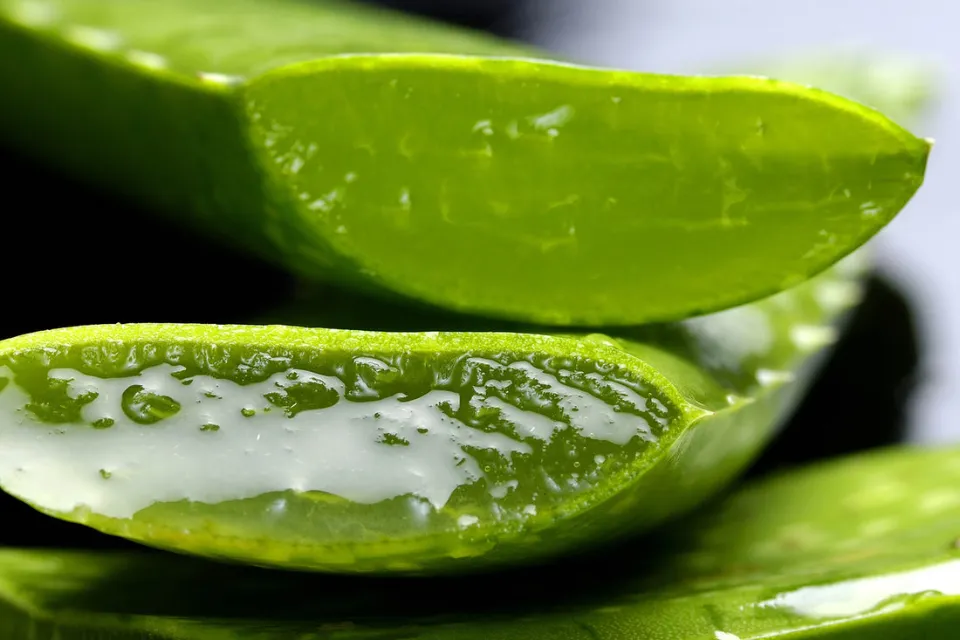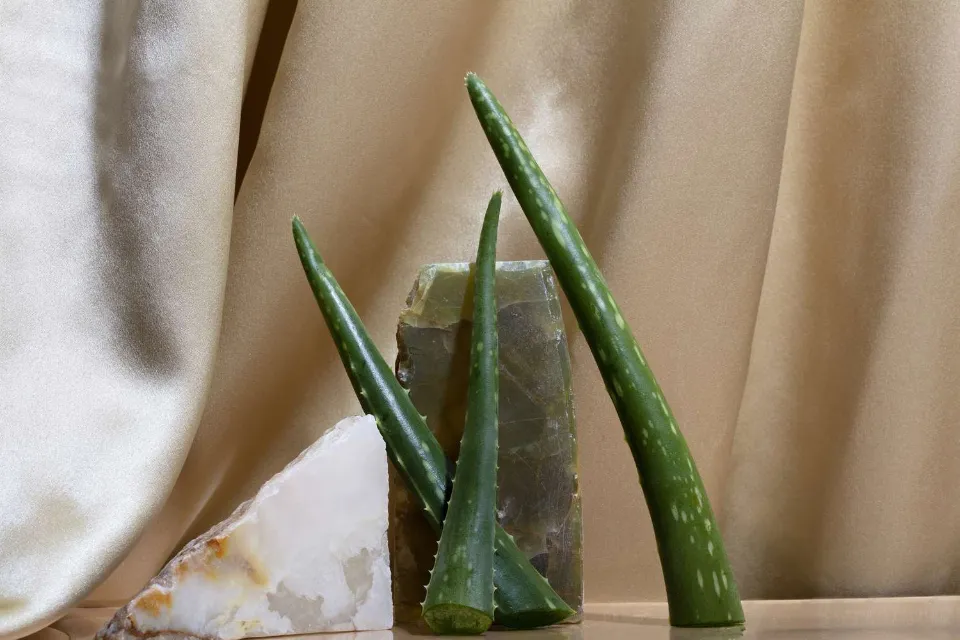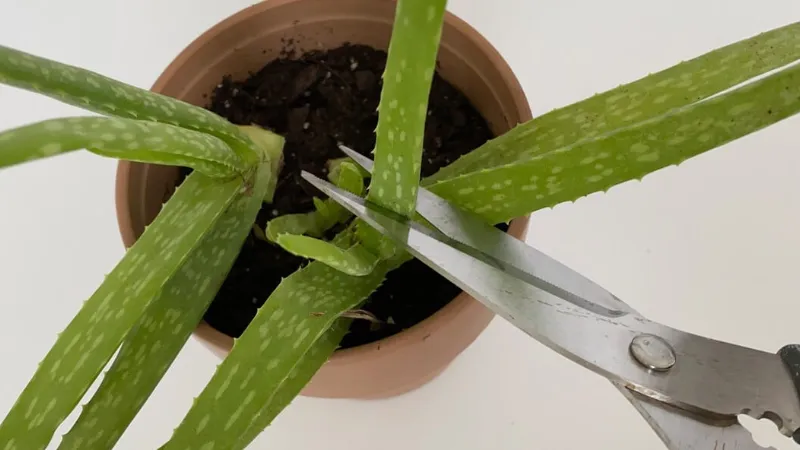You may have used aloe vera to soothe sunburns, but did you know that it may also have benefits for your hair? Here’s what you need to know about how aloe vera can strengthen your hair and assist you in controlling an itchy scalp or greasy strands.
Benefits of Aloe Vera for Hair: Calms An Itchy Scalp, Aloe Preserves Hair Color, Deep Cleans Oily Hair, Strengthens and Repairs Hair Strands, and May Promote Hair Growth.
You could condition and enhance damaged, dry hair by rubbing aloe vera into your scalp and hair and allowing it to enter your hair follicles. After letting it sit for an hour, rinse the gel off with a mild shampoo.
Please keep reading if you want to learn more.
Benefits of Aloe Vera for Hair
Here are the benefits of aloe vera for hair:
Calms An Itchy Scalp
The medical term for the condition we refer to as dandruff is seborrheic dermatitis. Aloe vera can be used to treat the signs of an itchy scalp and flaky skin beneath your hair.
Inflammation on the scalp brought on by dandruff was reduced by aloe vera, according to a 1998 study. Aloe plant fatty acids have anti-inflammatory qualities.
Aloe Preserves Hair Color
Sun exposure also has a significant effect on hair color. Color can fade, turn brassy, and dry out, making strands more brittle and prone to breaking. Similar to your skin, using aloe on the hair and scalp helps alleviate some of the damage caused by UV rays.
Aloe offers a much gentler cleanse that preserves color and keeps hair healthy because it doesn’t contain all of the extra parabens, sulfates, and synthetic fragrances found in traditional shampoos.

Deep Cleans Oily Hair
Aloe vera effectively cleans the hair shaft by removing surplus sebum (oil) and leftover hair product residue.
But aloe vera doesn’t hurt your hair strands while it cleans. Aloe vera is gentle and protects the integrity of your hair, unlike other chemicals found in hair products.
A great way to get hair that looks healthier, shinier, and softer is to use aloe vera.
Strengthens and Repairs Hair Strands
Vitamins A, C, and E can be found in aloe vera. All three of these vitamins contribute to cell turnover, promoting healthy cell growth and shiny hair.
Furthermore, aloe vera gel contains folic acid and vitamin B12. Both of these components can keep your hair from falling out.
However, there are no studies that unequivocally prove aloe vera’s ability to stop hair loss.
People frequently apply aloe vera to their skin after being exposed to the sun. This is as a result of its high collagen content and cooling qualities. Aloe vera’s vitamin content raises the possibility that it could also help your hair recover from sun damage. When propagating aloe vera, How much sun do aloe vera plants need?
May Promote Hair Growth
You might observe that hair loss and breakage lessen after your scalp has been cleansed and your hair has been conditioned with aloe vera.
Aloe vera has a reputation for promoting much faster hair growth, according to a lot of people. However, it’s difficult to confirm or deny those claims at this time based on available clinical data.

Tips for Using Aloe Vera
You can buy aloe vera gel from stores. Look for a product that has 100% aloe vera, without any added ingredients like fragrances and alcohol. Aloe vera leaf gel is also accessible for extraction. You can either grow it as a houseplant or purchase the leaves from some natural food stores.
Here’s how to remove the gel from an aloe vera plant:
- Take one of the plant’s leaves off. Select the older, thicker leaves that are on the plant’s outside.
- Discharge the yellow latex away from the leaf. Discard the latex.
- Rinse the leaf.
- Use a sharp knife to remove the spiny ends.
- To peel the leaf, cut it lengthwise with a knife or peeler.
- The clear gel can be removed by cutting or scooping.
Fresh aloe vera gel doesn’t last very long, but you can store it in a sealed container in the fridge for up to a week, or freeze it.
Treatment for the hair and scalp. Your hair and scalp can be directly treated with raw aloe vera gel. Work it into your scalp, hair, and ends with your hands. Apply some castor oil and massage it in to aid in sealing the moisture. For about 30 minutes, leave the aloe vera in place before rinsing.
For greasy hair. Combine 1 to 2 tablespoons of aloe vera gel, 1 tablespoon of lemon juice, and 1 cup of water. Use this solution to rinse your hair after shampooing, wait a few minutes, and then rinse again.

Do Types of Hair, Such as Curly Hair, React Differently?
Each type of hair requires a specific type of care. How a person’s hair reacts to a treatment or product will depend on factors like its density, texture, diameter, degree of curl, and porosity.
African-American hair tends to be very dry, and dermatologists recommend the use of products with natural ingredients, such as aloe vera, for hair care.
Aloe vera can help preserve the moisture levels in dry hair due to its rich combination of vitamins, minerals, moisture, and other nutrients.
Risks of Aloe Vera
Aloe vera use on skin carries relatively few risks in general. It might cause a skin rash in some people who are allergic to it. Check to be sure by rubbing a small amount on the inside of your wrist. Wait about 2 hours to see if your skin has any reaction.
If you’re using steroid creams such as hydrocortisone, be careful with aloe vera. It might increase how much cortisone is absorbed through your skin.
If you intend to consume aloe vera, use caution. Aloe vera latex and whole leaf extracts are probably unsafe in high doses. Kidney issues, cramps in the abdomen, and diarrhea are some of the side effects. There are also potential interactions with medications like anticoagulants and diabetes drugs.

FAQs
Can You Leave Aloe Vera in Your Hair Overnight?
Aloe vera can be applied to hair and left on overnight with no risks. You can apply fresh aloe vera gel in your hair before going to bed and wash off in the morning for soft and healthy hair.
Does Aloe Vera Plant Help Hair Growth?
Aloe vera promotes healthy hair growth thanks to a special enzyme found in aloe called proteolytic enzymes. The dead skin cells on the scalp that might clog hair follicles are effectively broken down by these enzymes. If hair follicles are blocked with excess sebum, dirt, or dead skin, they won’t be able to grow properly.
Can Aloe Vera Damage Your Hair?
Effectively removing excess sebum (oil) and residue from other hair products, aloe vera cleans the hair shaft. But aloe vera doesn’t hurt your hair strands while it cleans. Aloe vera is gentle and protects the integrity of your hair, in contrast to other chemicals found in hair products.
Do You Put Aloe Vera on Wet Or Dry Hair?
It depends. If you are using aloe vera gel for hair as a leave-conditioner, then you can apply it on wet hair after your usual conditioner. But if you’re applying it to your hair as a mask, you should do so on wet hair and then rinse it out after a couple of hours.
Summary: Benefits of Aloe Vera for Hair
More clinical evidence is needed to definitively prove the benefits of aloe vera gel for hair, and studies are ongoing.
But if you want your hair to look its best, you might want to try using aloe vera gel as part of your hair care regimen. There is little to no risk in trying it, though it might not be effective for everyone.
If you have any questions, please leave a comment. My Prime Home tries to give you the best home improvement information. Don’t forget to share the post. Thank you for reading.
You may also interested:



